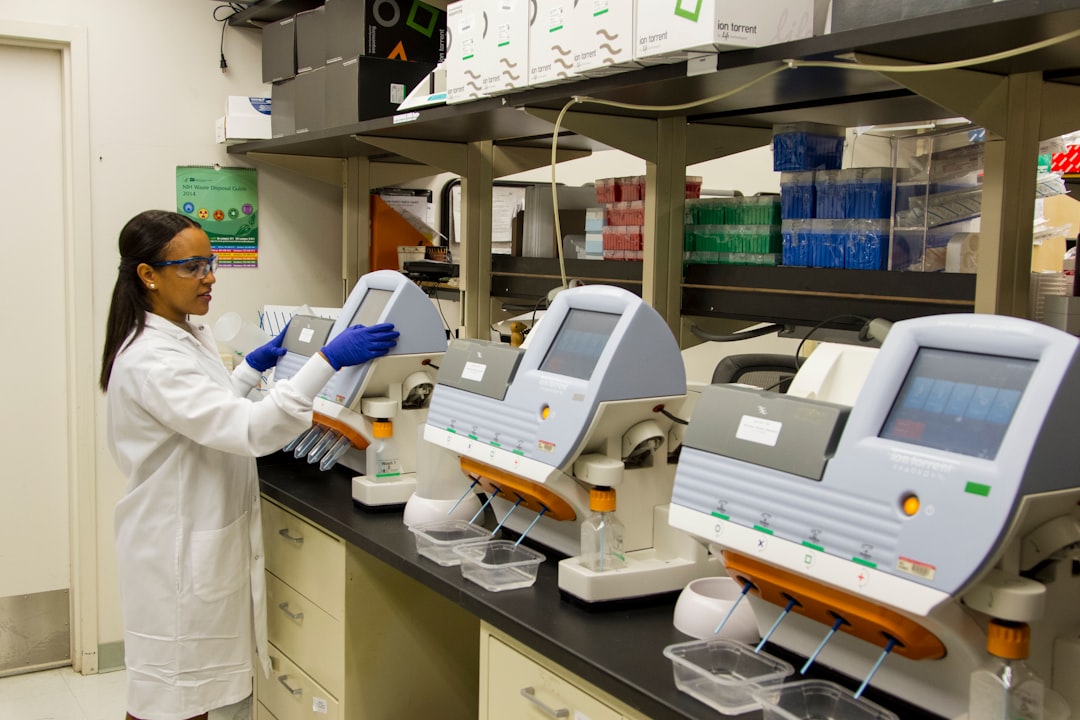No products in the cart.
AI Revolutionizing Medical Research: A New Era of Drug Discovery
AI is reshaping medical research, speeding up drug discovery, and creating new career paths for scientists. Discover how technology is changing the landscape of healthcare.
In the race to develop new treatments and vaccines, artificial intelligence (AI) has emerged as a transformative force. Imagine a world where life-saving drugs can be developed in a fraction of the time it typically takes, where researchers can tap into vast pools of data to glean insights that were once hidden in plain sight. This is not science fiction; it is the reality of AI in medical research.
AI is not just a tool for speeding up processes; it is reshaping the very fabric of research careers. The integration of AI in clinical trials and drug development is ushering in a new era of innovation, one that demands a fresh set of skills and a new way of thinking about biomedical research.

To understand the profound impact of AI on medical research, we must first explore its capabilities. Traditional drug discovery is a long and arduous journey, often taking over a decade and costing billions. However, with AI, researchers can analyze vast datasets at lightning speed, identifying potential drug candidates with unprecedented accuracy. For instance, the AI model developed by Atomwise has been able to predict the effectiveness of existing drugs against new diseases, dramatically reducing the time needed for initial screening.
But what does this mean for scientists and researchers? The conventional path in biomedical research is evolving. There’s a growing demand for experts who not only understand the biology of diseases but also possess a command of data science and AI technologies. Universities are beginning to adapt their curricula, offering programs that blend biology with computational skills, preparing the next generation of scientists for a tech-driven future.
Universities are beginning to adapt their curricula, offering programs that blend biology with computational skills, preparing the next generation of scientists for a tech-driven future.
“We are training a new breed of researchers,” says Dr. Emily Tran, a professor at Stanford University and a pioneer in AI-driven biomedical research. “They need to be comfortable with algorithms, data analytics, and machine learning, as much as they are with traditional lab techniques.” This shift is not just about acquiring new skills; it represents a fundamental change in how research is conducted.
While many welcome this evolution, others express concerns. Critics argue that relying heavily on AI could diminish the human element in research. The intuitive leaps that seasoned scientists make, often based on years of experience, can be difficult for AI to replicate. Moreover, there’s an ethical dimension to consider—how do we ensure that AI systems are trained on diverse data sets to avoid biases that could affect health outcomes?
Indeed, the intersection of AI and ethics is a hot topic of discussion among researchers. The potential for AI to perpetuate existing disparities in healthcare is a real concern, as highlighted by a 2021 study published in the journal Nature which found that many AI systems trained on historical data can reinforce biases against underrepresented groups in clinical trials.[1] Addressing these issues requires a collaborative approach, bringing together ethicists, data scientists, and medical professionals to ensure that AI serves as an equitable tool in healthcare.
As we look to the future, the role of AI in medical research is set to expand. Startups like BenevolentAI and GRAIL are harnessing AI to identify new drug targets and improve early cancer detection, respectively. These innovations offer a glimpse into a future where diseases can be tackled more effectively, thanks to the rapid advancements in AI technology.
Moreover, the implications extend beyond research labs. As AI reshapes the medical field, it is also influencing the job market. Positions that once focused solely on laboratory skills are now evolving to include roles such as data analysts, machine learning engineers, and AI ethicists. According to a report from the World Economic Forum, the integration of AI in healthcare is expected to create 133 million new jobs globally by 2022, many of which will require a blend of medical knowledge and tech-savvy skills.[2]
Positions that once focused solely on laboratory skills are now evolving to include roles such as data analysts, machine learning engineers, and AI ethicists.
For young professionals entering the workforce, this means adapting to a landscape where continuous learning is crucial. “The ability to pivot and learn new skills will be essential,” says Dr. Tran. “Those who can navigate both the scientific and technological realms will be at the forefront of this revolution.”
In conclusion, AI in medical research is not just about efficiency; it’s about creating a new paradigm of discovery that democratizes access to healthcare innovations. As we embrace this change, it is vital to ensure that the benefits of AI are shared equitably across all communities. The future of medical research is not only about faster trials and smarter scientists, but it is also about building a more inclusive healthcare system.











